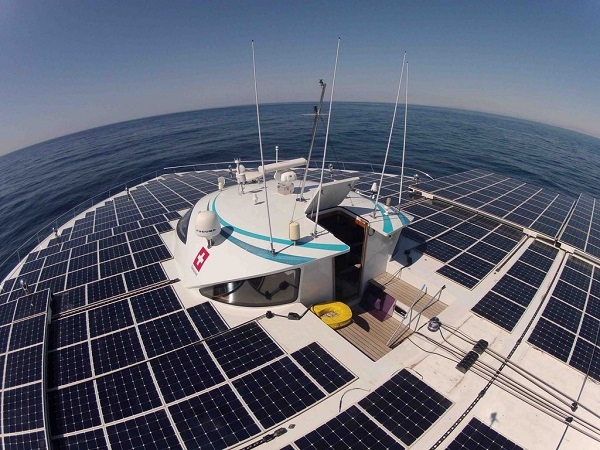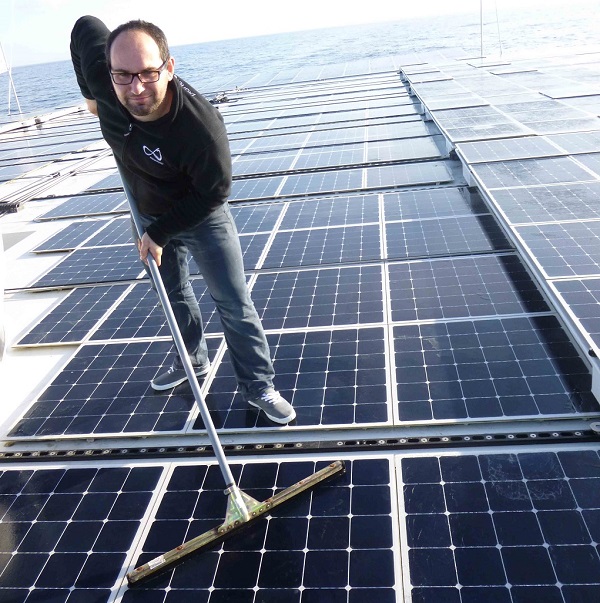The MS Tûranor PlanetSolar, the futuristic-looking but quite real catamaran that is powered by sunlight alone, is at sea once more.
A year ago the boat completed a 584 day, 32,000 nautical mile trip around the world. Now, with an entirely new crew and after a lot of maintenance work and some refurbishing – including a new, submerged propeller system – the Swiss vessel is off on an adventure that will include a scientific expedition along the Gulf Stream and a campaign to collect floating plastic waste.

In a rust-busting 850-mile first stage, the ship departed La Ciotat on the Côte d’Azur on April 8, and cruised across the Mediterranean and through the Strait of Gibraltar to arrive this Wednesday in Rabat, Morocco.
“We faced many challenges during this stage, as it’s the first time since its maintenance service that the boat was able to sail the high seas longer than 24 hours, under difficult conditions at times,” Captain Gérard d’Aboville said in a blog post. “This is what particularly led us to realize how well the boat handled! Reaching this stage and arriving at Rabat is the first success for the 2013 campaign.”

During a four-day call in Rabat PlanetSolar will spread its pro-renewables message, playing host to a parade of school classes. That’s one continuing task the project will take on throughout its journey across the Atlantic to the Antilles, then up the Atlantic Seaboard to New York City, Boston and St. John’s, New Foundland, before heading back across the North Atlantic to Reykjavik and Scandinavia before rounding the Iberian Peninsula for a tour to the Eastern Mediterranean.
But the primary mission of the four-month voyage is scientific research into the Gulf Stream, the warm, fast Atlantic current that plays such a profound role in climate patterns. The research will be overseen by Martin Beniston, a climatologist and director of the Institute of Environmental Sciences at the University of Geneva.
“A continuous series of physical and biological measurements will be taken in the water and air to study the key parameters of climate regulation, specifically atmospheric aerosols and phytoplankton,” Beniston said in a statement.
Aboard the ship is an instrument developed at Geneva, the “Biobox,” said to be uniquely able to analyze aerosols using laser technology. “Powered by solar energy, the ship does not emit any polluting substances that could distort the data collected,” the PlanetSolar team said.
In the later stages of this summer’s journey, the PlanetSolar will assume the role of garbage collector. Working with the Waste Free Oceans Foundation, the catamaran “will be equipped with an ingenious trawling net – a sort of giant filtering scoop – that can collect up to 8 tons of marine pollution,” the team said.